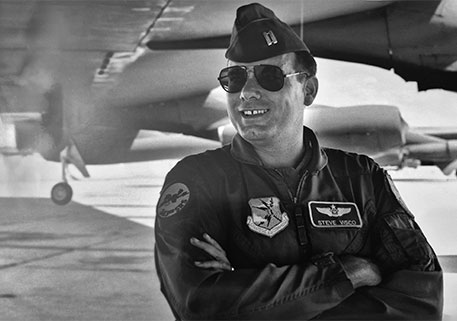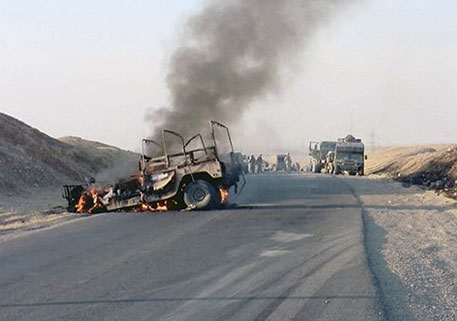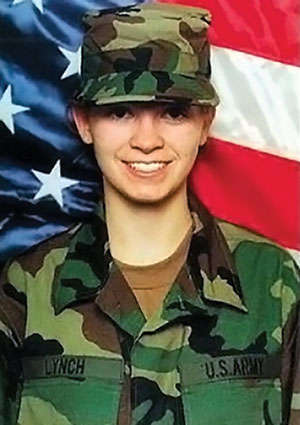
The loss Jessica Lynch can’t escape has little to do with her captivity and nationally televised rescue in the earliest days of the Iraq War. It’s the lost friend she dearly misses.
The Army veteran’s friend, Lori Piestewa, was killed in the same ambush that left the then-19-year-old unconscious, severely injured and alone in the hands of the enemy in March 2003.
The West Virginia native opened up about her captivity, her nationally televised rescue and her continued recovery, speaking to an audience of fellow veterans at a DAV Department of Indiana event in November 2022, in Gary, Indiana.
Like many who signed up after graduating from high school, Lynch said she knew the risks when she raised her hand to serve. But that all changed just days into the invasion of Iraq, when she was in a supply truck at the tail end of a convoy headed for Baghdad.
“What ended up happening was 33 of us United States soldiers and 17 vehicles fell so far behind that we lost that entire convoy,” Lynch explained.
It was Piestewa who stopped the Humvee she was driving and picked up her friend when the gearbox on Lynch’s truck gave out. The convoy remnant drove toward lights on the horizon in southern Iraq in the hope they were friendly.
The Americans found themselves driving into one of Iraq’s largest cities, Nasiriyah—and an ambush.
Gunfire erupted from the rooftops, and then a rocket-propelled grenade exploded.
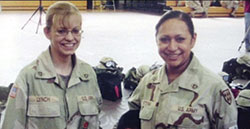
Lynch said the Humvee Piestewa was driving ended up slamming into the back of a disabled American 18-wheeler.
“For us in that little Humvee, when we slammed into the back of that trailer, the—um sorry,” Lynch said, pausing. “Lori hit her head off the steering wheel and ended up dying of head trauma. My first sergeant and the two men that were sitting beside me were all shot and killed. For me, at some point during the ambush, I had become unconscious. Something knocked me out.”
Iraqi combatants pulled Lynch out of the Humvee, twisting and breaking her foot, which had been jammed under the front seat, in the process. She was then taken prisoner and awoke in one of Saddam Hussein’s palaces unable to move from the waist down because her back was broken.
She said she was stripped of all her military gear and was beaten by the Iraqis who were holding her.
“They took a ball bat, like a metal pipe I guess you would say, and busted my left tibia,” she said of her time in captivity.
“But after the point of the palace, the good Iraqis ended up taking me to the hospital,” she said. “And at that point I am separated from the rest of my former POWs, the rest of my comrades, so I had no idea what was happening. But I knew that I was all alone and that I was scared.”
Her nine days of captivity ended on April 1 with a rescue by U.S. special operations forces. Broadcast news aired footage of Lynch being carried away on a stretcher.
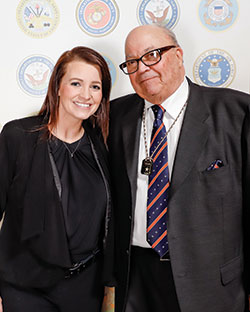
Bob Carnagey, commander of the DAV Department of Indiana, said Lynch left the crowd speechless when she showed military night-vision video of U.S. military members storming the building she was rescued from.
“You saw a young woman at 76 pounds experiencing the impacts of war and how ugly it was,” Carnagey said.
Having recently undergone an eighth surgery on her foot, Lynch now receives her medical treatment through the Department of Veterans Affairs.
Today, she teaches grade school in her home state and is surrounded by family and friends for support. She also keeps in contact with Piestewa’s family in Arizona and travels there each year to remember her at a memorial service.
In an early chapter of the biography she authorized on her life, “I Am a Soldier, Too,” by Rick Bragg, Lynch introduced herself and Piestewa as “best friends forever.”
“Meeting my best friend was a huge part of my life,” Lynch said in an interview with DAV. “I do anything that I can to be there for her family.”
Lynch said she is choosing to tell her story now to veterans in the hope that the act of sharing will inspire other veterans to seek help. She said it took years to seek out any mental health counseling, and she encouraged veterans to get the help they earned.
“I’m not looking for sympathy for what I went through,” she added. “I signed that paper. I signed my name. I joined. I knew the risks that were involved. I was hoping that they would turn out differently so that I could come home, which I did, and I’m very thankful for that.”

